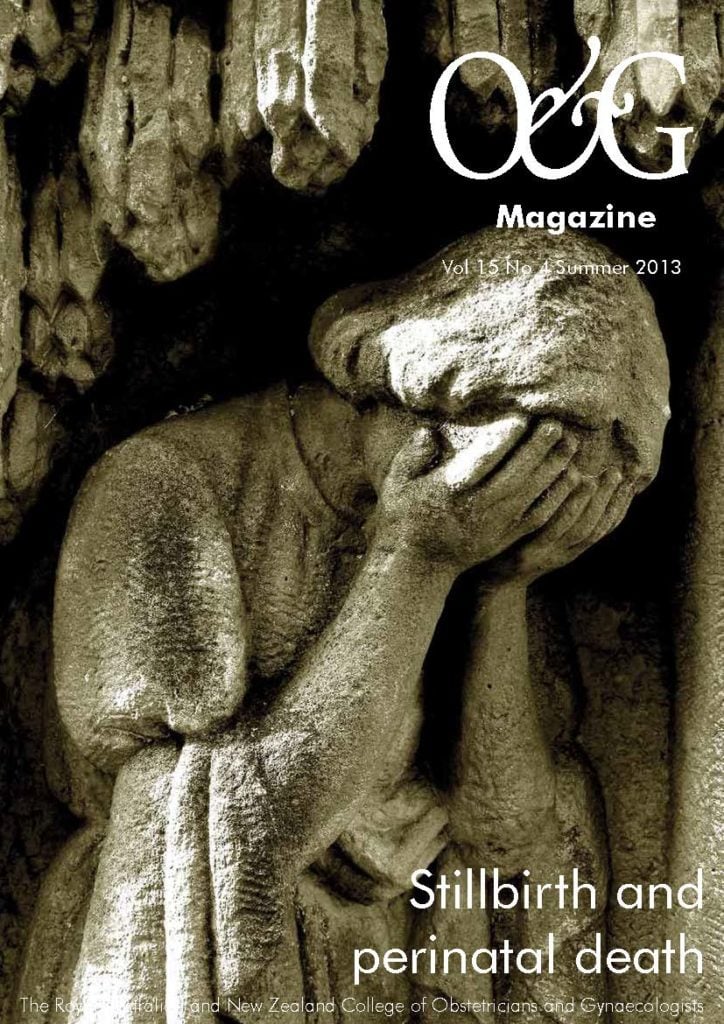Although policies still promote this as an ideal, the majority of women do not exclusively breastfeed their infants until six months of age. Should clinicians take this into account?
Each of the public and private hospitals I have worked in over the past ten years has sought Baby Friendly Hospital Initiative (BFHI) accreditation. Among the benefits of breastfeeding listed on the BFHI website are: breastfed infants are less likely to suffer from diarrhoea, acute respiratory infections and other serious illnesses.1
Breastfeeding establishes and supports a baby’s immune system and helps protect from chronic conditions later in life, such as asthma, allergies, heart disease, obesity and diabetes. Breastfeeding is also stated to support a baby’s developing brain and nervous system, ensuring optimal intelligence. Hospitals accredited with BFHI are expected to provide information on these benefits both antenatally and postnatally. BFHI accredited hospitals are encouraged to adhere to a ten-point plan to successful breastfeeding, including a policy of no supplementation of breast milk unless medically indicated, 24 hour rooming in, no use of artificial teats or dummies and encouraging of feeding on demand. While BFHI-accredited hospitals comprise only 19 per cent of maternity facilities in Australia1, similar information is widely available to expectant mothers.1
Media outlets report the positive benefits of breastfeeding, while negative studies may receive less publicity. For example, in 2013 Belfort et al’s American study reporting increased intelligence in breastfed children at three and seven years of age was widely reported, despite not all measurements of cognitive performance in that study showing a significant difference2, while Horta et al’s larger study showing no consistent relationship between breastfeeding and educational attainment has received less publicity.3 Walfisch et al this year reported a large systematic review of 84 studies of the association of breastfeeding and intelligence quotient (IQ).4 They selected studies to only include healthy term babies, validated measures of cognitive development and a prospective or retrospective documentation and duration of breastfeeding. Many of the studies reviewed had adjusted for possible confounders such as socioeconomic status, maternal education, birthweight, gestational age, birth order and gender. Of the 84 studies included, 28 showed a significant positive association between breastfeeding that was maintained after adjustment for confounders, while 21 showed no association between breastfeeding and IQ. Thirty-five studies that showed a positive relationship prior to adjustment for confounders showed a reduced (17 studies) or no association (18 studies) after adjustment. The most common confounders were maternal intelligence and socioeconomic status. The size of the effect of breastfeeding on IQ in the included studies appeared to be five points or less.
IQ tests are designed to have a population median of 100 points with a standard deviation of 15 points. Most IQ measures have a standard error of measurement of about three points, with a person’s true IQ 95 per cent likely to be within plus or minus about four points of their measured score. It could be reasonably argued that an effect size of about five points may not have a strong clinical significance.
The 2012 NHMRC Eat for Health guidelines on child and adolescent feeding recommend infants are exclusively breastfed until six months of age, with some breastfeeding to continue until 12 months and beyond if the mother and child wish.5 The BFHI website also supports the World Health Organisation (WHO) statement that babies would be exclusively breastfed until six months of age.1 Despite the benefits of breastfeeding being well known to most women, exclusive breastfeeding until six months is not the norm in Australia. The 2010 Australian National Infant Feeding Survey published the Australian Institute of Health and Welfare (AIHW) reported that only 39 per cent of infants were exclusively breastfed to three months and two per cent exclusively breastfed to six months.6 The survey also found that nearly ten per cent of infants were receiving no breast milk by four weeks of age, although this was only a very small sample size of 33 respondents with children aged four weeks or less at the time of the survey. By three months of age 30 per cent of infants were receiving no breast milk.
These data indicate that, while breast milk is acknowledged to be the optimal food for babies, a substantial number of women do not persist with breastfeeding until the recommend ages. The AIHW survey reported four per cent of children aged 24 months had never been breastfed. Reasons cited by the women for never giving breast milk included a previous unsuccessful attempt at breastfeeding (38 per cent), so partners could share in feeding (29 per cent), a belief that formula was as good as breast milk (26 per cent), medical reasons for mother (20 per cent) and not feeling comfortable breastfeeding in public (16 per cent). For women who started breastfeeding but stopped before six months, the most common reason was not enough milk (56 per cent), baby was unsettled (24 per cent) and baby not attaching properly (25 per cent).6
There are some data linking unsuccessful breastfeeding and postnatal depression. For example Gugliardi et al administered the Edinburgh Postnatal Depression Scale (EPDS) to 592 women two-to-three days after delivery and then surveyed their feeding methods at 12–14 weeks post-birth. Their results indicated an association between a higher EPDS scale and an increased rate of bottle feeding at three months. The association was seen even with relatively low levels of depression as measured by the EPDS.7 Steube et al propose that there is shared neuroendocrine basis to both failed breastfeeding and perinatal depression. Drawing from both animal and human studies, the authors propose a number of mechanisms that may lead to both unsuccessful lactation and perinatal depression. For example, low serotonin levels can inhibit prolactin release, as well as being associated with mood disorders, while differences in pain perception can lead to cessation of breastfeeding owing to pain and are linked to perinatal depression. They also review data showing infants born to mothers with depression have different suckling responses to babies born to euthymic women, which may then predispose to unsuccessful breastfeeding.8
The association between unsuccessful breastfeeding and perinatal depression is unlikely to be in one direction. In some women, failure to breastfeed may lead to feelings of guilt and anxiety, which then predispose to the development of postnatal depression. With such widespread support for women willing and able to continue breastfeeding until at least six months, there sometimes appears to be less consideration for women who do not continue to breastfeed. Flaherman et al conducted ten focus groups with American women who had milk supply concerns in the first month of their child’s life.9 While this was a small qualitative study, some of the responses of the women seem familiar. Women in the study, especially those who eventually ceased breastfeeding, reported feelings of pressure and guilt associated with milk supply problems and the introduction of artificial feeding. Interestingly, women reported that their interactions with nurses and lactation consultants regarding breastfeeding were more salient than those with paediatricians and obstetricians, suggesting our influence may be less than we think. The authors particularly focused on the role of newborn weight measurements in women’s decisions to continue with breastfeeding, suggesting they may provide an important focus for supporting women’s feeding choices.
Labbok presents a thoughtful analysis of the physician’s role in the development of guilt in women who don’t breastfeed.10 Where Flaherman et al report that women may have their guilt exacerbated by their interactions with healthcare workers, Labbok cautions that doctors need to ensure this doesn’t lead to them failing to promote breastfeeding for fear of increasing guilt feelings in their patients. Rather she suggests we should equip ourselves to support women as much as possible in their feeding, while still advocating the best practice in infant feeding.
As always in clinical practice, studies and policies can only get us so far. The majority of women do not exclusively breastfeed their infants until six months of age, while many of our policies still promote this as an ideal. As clinicians we should be aware of this disparity and support our patients in their particular path through this sometimes difficult phase. We need also to be careful to critically assess the sequelae of both continuing and ceasing breastfeeding.






Leave a Reply